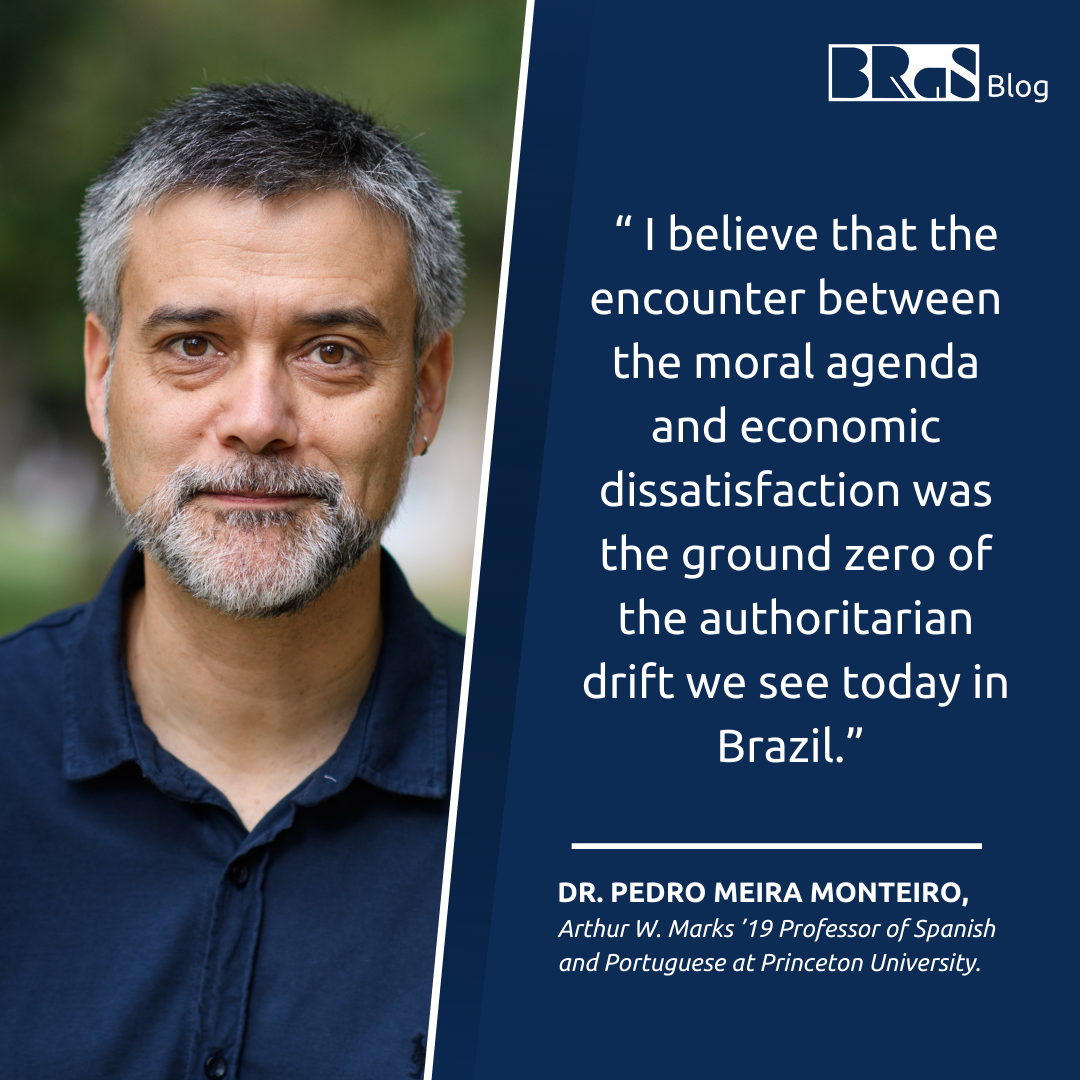by Rafaella Jaeger*
Edited and reviewed by Giovanna Imbernon and Anna Paula Bennech**
Brazil is a country marked by historical inequalities. Therefore, the poorest population is the most affected by the COVID-19 pandemic. This effect was expected. However, President Bolsonaro’s lack of commitment to the health of the Brazilians surprised everyone. A series of meaningless statements integrates Bolsonaro’s speech. He said: “the virus is like a mild cold;” “no restrictive measures are necessary to control the spread of the virus;” and “drugs not approved by the FDA can be used to prevent the disease.” Making matters worse, Bolsonaro delayed the arrival of vaccines in the country.
Bolsonaro’s negative actions have become a global problem. Elected in 2018, his controversial opinions, full of prejudice and hatred, surprise the world. In the recent past, he defended torturers from the pulpit of the National Congress and participated in events against democracy. Now, Bolsonaro is implementing a series of anti-democratic actions, such as exposing the workers to the virus through anti-lockdown initiatives, rather than providing financial support for them to stay at home. Nevertheless, the results of the survey “Values in the Crisis 2020”, carried out by Instituto Civis and Instituto Votorantim, showed that about 82.5% of Brazilians believe that the relativization of democracy can help in this period of crisis.
Scientists and healthcare professionals are leading the fight against the virus, and there is virtually no government support to fight the pandemic. The politicization of the virus promoted by Bolsonaro and the governor of the State of São Paulo, João Dória, caused a slight change in the president’s speech. For instance, he no longer promotes campaigns against vaccination. On the other hand, the confrontation turns the health crisis into an electoral platform for the two politicians.
The implementation of policies that beneficiate the population leads a share of the voters to approve the politician’s trajectory, consolidating his career. The trajectory of Bolsonaro is based on an empty speech, which has no actual positive effect on society. In this context, democracy is of great importance: he will not be re-elected if people vote consciously.
According to Robert Dahl, known for his conceptualization of the quality of democracy, this political regime combines civil and political rights, freedom of expression, and access to various sources of information. In a democratic country, Dr. Li Wenliang would not be punished for communicating to his colleagues that China would face a major epidemic. The disease identified by Wenliang in December 2019 arrived in Brazil in February 2020.
In the words of Sousa Santos (2020, p. 6-7), the pandemic “only aggravates a crisis situation to which the world population is subject,” but “it tends to be less lethal in democratic countries, due to the free flow of information.” In Brazil, there is no adequate public policy to fight the virus. Consequently, solidarity actions assume a fundamental role in containing the effects caused by the crisis, which intensified existing inequalities.
Bolsonaro used the emergency financial aid, an initiative from the legislative branch, for political gain. At first, his government argued that it was impossible to ensure assistance to part of the vulnerable population. Subsequently, he agreed to grant half the amount established. However, when the aid, consisting of three installments of R$ 600 (approximately US$ 112.00), was approved, Bolsonaro sought to promote himself politically through the policy.
Bolsonaro also raised the possibility of creating a new program, which would replace Bolsa Família (so criticized in his campaign) and the emergency aid. Citizen income would be the name of this new program. Bolsonaro, aiming for his reelection or not, chose the right name for his emergency aid program since citizenship is directly linked to these issues. The pandemic led us to rethink our role as citizens. According to Sousa Santos (2020, p. 10), the policy “that should be a mediator between the ideologies and the needs and aspirations of citizens, came to resign.”
Brazil is recognized worldwide as a reference in vaccination and for the Unified Health System (SUS). Despite this, Brazil reached 400 thousand deaths, occupying the ninth place in the ranking of deaths caused by the virus. Recently, Minister Luis Roberto Barroso, from the Supreme Federal Court, ordered Covid’s Parliamentary Commission of Inquiry (CPI, in Portuguese) installation. The CPI aims to investigate the role of Bolsonaro’s government towards the crisis and the possible illegality in the release of financial resources to fight the virus. Bolsonaro fears the investigation because he neglected the pandemic and therefore tried to prevent the CPI’s establishment. So far, his political maneuvers to intervene in the CPI have been unsuccessful.
The national context indicates the need for a new direction. In the words of Sousa Santos, the situation demands an “organized citizenship (political parties, social movements, and organizations, spontaneous citizen mobilizations) that will close the gap between the political and civilizing processes” (2020, p. 30). In other words, effective political participation by civil society is becoming increasingly necessary and urgent.
References
Dahl, Robert. A Preface to Democratic Theory. Rio de Janeiro: Jorge Zahar Editor, 1989.
Dahl, Robert. Polyarchy: Participation and Opposition. São Paulo: Editora Universidade of São Paulo, 1997.
Instituto Sivis, and Instituto Votorantim. “Relatório Valores em Crise 2020,” August 2020. (April 2021). https://sivis.org.br/wp-content/uploads/2020/08/RelatorioValoresEmCrisePrimeiraOnda.pdf.
Sousa Santos, Boaventura de. The Cruel Pedagogy of the Virus. Coimbra: Editions Almedina, 2020.
* Rafaella Lopes Martins Jaeger holds a bachelor’s degree in Social Sciences from the Universidade Federal Fluminense (UFF) and is a master’s degree student in Political Science at the Federal University of São Carlos (UFSCar). She is also a member of the Center for the Study of Latin American Political Parties (NEPPLA). Email: rafaellalmjaeger@gmail.com ORCID: https://orcid.org/0000-0002-7186-9219
** This opinion essay was submitted and approved before the start of the COVID-19’s CPI had started its activities.







